Explore high-disciplinary agriculture courses by studying biology, natural environments, agricultural production, business management, bio-based economies, global food systems, etc and understand the complex theories related to aquaculture, horticulture, and more technical aspects of the agriculture sector as a whole. Build a strong foundation in agricultural science with the right combination of practicals, lectures, tutorials, and laboratory sessions knowledge behind the agricultural industry.
- Gain a wide range of technical skills related to crop farming, animal care, sustainable practices, and more.
- Understand the deep-rooted agricultural concepts, methods, scientific studies, and commercial principles.
- Delve into the science related to plants or seeds study, covering plant disease, growth, and genetics.
- Cover the study of numerous technical and scientific subjects related to the industry such as agriculture technology, food technology, plant sciences, and animal husbandry.
- Understand the science behind the insights of the production, management, and other aspects of aquatic life.
- Get familiar with the latest agriculture concepts, techniques, and modern methods in a particular area of specialisation.
Top Marketable Careers for Agriculture Course Graduates
A bachelors or masters degree in Agriculture not only enhances the knowledge and refines the skills of students, but also allows them to use the micro to macroeconomics principles to solve agriculture-related problems. Some of the top agriculture specialisations you could consider are as follows:
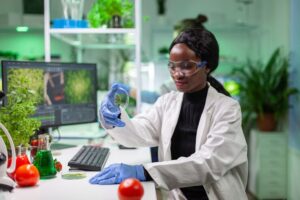
Agricultural Scientist
An agricultural scientist is a specialist that aims to analyze agricultural methods and different concepts including food production methods to improve the safety and yield of crops. Through scientific research, a skilled scientist works on the latest, modern and innovative ways to enhance, improve and deliver a better quality of the food grown. The most common roles of the agricultural scientist are to craft effective strategies for making farming affordable to the farmers, animal husbandry, and giving a new dimension to the reliable farmers by educating them.
The agricultural scientist mostly works full time in laboratories, concerning offices and particularly in fields to tackle many issues related to agriculture. The role of a scientist heavily involves assessing agricultural productivity, understanding the agricultural world, and making the agricultural environment safe for food, plants as well as animals.
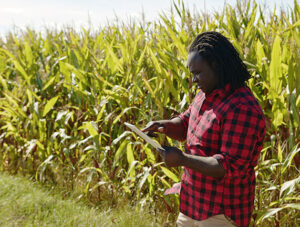
Food Microbiologist
Graduate college students in Food Microbiology take a look at microorganisms and their response to ingredients and their environments. Areas of emphasis are know-how of the ecology for microbial spoilage and pathogenicity, predicting microbial increase and loss of life with pc models, growing new detection techniques, locating and the use of herbal microbial inhibitors, know-how the genetic foundation for pathogenicity, and the response of microorganisms to new renovation techniques.
Food Microbiologists take a look at the interactions among meals, microorganisms, and their surroundings to make sure meals are safe, quality, and valuable. They further study new-age techniques to preserve various foods accordingly and aim to prevent them from spoilage in the food production chain. The microbiologist’s job is to evaluate how the microorganism gets into a certain type of food, what measures can be taken to control the growth of microbial in foods, and determine why some harmful bacterias have virulence and tendency to cause disease.

Aquaculture Technician
An aquaculture technician is a qualified person that mostly involves the farming of aquatic animals like fish, crustaceans, mollusks, including aquatic plants and organisms under controlled conditions. Their main job responsibilities are to control all or most of the aquaculture-related activities, raise both fish and plants for food & recreational purposes, manage public lakes, rivers, and fishing areas, check water quality measurements, and a lot more.
They are involved with the daily operations on aquatic farms or hatcheries. Their work involves breeding, harvesting, and transporting stock as well as maintaining their aquatic environment. From keeping the tanks clean to monitoring water quality, oxygen levels, salt content, and pH levels, the aquaculture technician is a part of almost every maintenance activity that takes place on an aquatic farm.

Crop Specialist
A crop specialist is a skilled person working to improve the way a business or organization manages, analyzes, and utilizes the data of the seed or crop production process. They smartly use their expertise, skills, and detailed knowledge of different agricultural techniques, products, and technological advances to provide utmost guidance to the farmers and get the most from the soil and the earth.
The key job responsibilities of the crop specialist mostly include the systemization of various data initiatives that also include data in the field and metrics based on asset performance, presenting various collective data systematically for strategic decision making, making specific modifications and improvements in the system if required, developing as well as following standard practices for data entry, management, and documented processes.
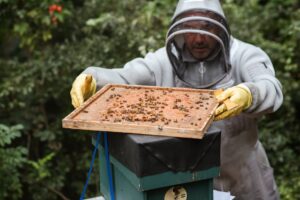
Plant Geneticist
Plant geneticists are people who conduct thorough research to understand the nature of a variety of useful plants or crops including their seeds. They are meant to further make the life as well as the growth of the plants healthy. By studying a plant’s DNA, they find out other exciting ways to improve the shape, size, production rate, pesticides, and disease tolerance of the same plants. They are generally more interested in the way plants grow, develop and reproduce by following the best practices in scientific methodology and meeting the agricultural standards.
Plant geneticists can work in a variety of settings such as colleges and universities, government agencies, businesses, multinational corporations, private companies, etc.
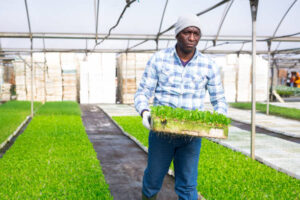
Horticulturist
A horticulturist is the professional responsible for increasing the yield and improving the vitality, size, and taste of the plants. They usually coordinate research programs for selective crops and find a suitable solution to improve the same. The horticulturist must have extensive knowledge of trees, flowers, vegetables, nuts, shrubs, and fruits.
Commercial horticulturists are engaged in the cultivation, packaging, and sale of crops, from food to vegetables to ornamental plants. At the highest levels, they act as the enterprising managers who control all aspects of the production process and help ensure that everything goes smoothly in the market.
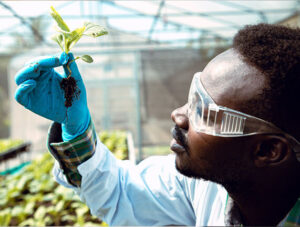
Agricultural Engineer
Agricultural engineers are professional engineers that aim to solve minor to major problems related to energy supply, the efficiency of machines, the use of structures and systems, pollution and environmental problems as well as the storage and processing of agricultural products. They are known to be skilled people who carry specialisation in a variety of areas such as agriculture and forestry, aquaculture, and biofuels. Most agricultural engineers work either full-time or part-time. However, their working hours may vary depending on the project they are working on.
Agricultural engineers mostly make smart use of advanced computer technology to design machines, systems, and equipment. They can construct earthmoving vehicles that can perform multiple agricultural tasks regardless of the weather conditions in the particular area.

Soil Engineer
The work of a soil engineer is to carefully analyze the structure of the soil of a building or construction site. This helps the engineers to understand the pitfalls and address issues related to existing structures due to land conditions among them. A soil engineer, also known as a geotechnical engineer, is a civil engineer who specialises in evaluating the properties of the terrain on which a structure is being constructed.
Soil engineers also consider the bearing capacity of the soil beneath a building’s foundation and estimate the likelihood that the building will settle or move over time.